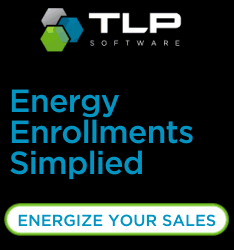|
|
|
|
|
Proposed Decision Would Impose $750,000 Civil Penalty On Retail Supplier
The following story is brought free of charge to readers by EC Infosystems, the exclusive EDI provider of EnergyChoiceMatters.com
The Connecticut PURA issued a proposed decision under which PURA would determine that a pre-recorded telemarketing message used by an agent of Spark Energy, LLC violated certain statutes, and under which PURA would impose a civil penalty in the amount of $750,000 on Spark Energy
The proposed decision would determine, "that Spark Energy, LLC (Spark or Company) has failed to comply with the provisions of Sections §§ 16-245(g)(2), 16-254o(h)(1), 16-245o(h)(2)(A), 16-245o(h)(3), 16-245o(h)(4), 16-245o(j) and 42-110b of the General Statutes of Connecticut (Conn. Gen. Stat.) by utilizing a pre-recorded message that: (1) never identifies Spark as the entity conducting the telemarketing, (2) represents to customers that the solicitation call is from an electric distribution company, (3) never explains the purpose of the sales call, which was to have customers enroll in a supply contract with Spark, and (4) misstates the electric distribution company’s current charges. Furthermore, the Authority finds that Spark did not directly train its third-party agents in contravention of Conn. Gen. Stat. § 16-245o(h)(1)."
The proposed decision is not final, and parties may file exceptions to the proposed decision
The proposed decision would also provide that, "Spark is also directed to maintain audio recordings of all telemarketing calls made by it or on its behalf by any third party and submit to periodic auditing of marketing by the Authority for a period of one year from the date of this Decision. If Spark does not adhere to this monitoring requirement or if the Authority finds further violations, the Authority will subject Spark to further penalties and/or revoke its license."
The proposed decision states that the Authority, "determined that calls had been made on Spark’s behalf using a pre-recorded message from telephone number 475-275-8919, which stated the following: 'Hello and thank you for being a valued customer of Eversource Energy formerly Connecticut Light and Power. The following is an important update regarding your account. Starting this month, all current customers that have not missed a payment in the past six months may now be eligible for a discount up to 15% on their monthly bill. If you would like to check your eligibility for this discount, simply press 1 on your phone now. If you are not a current customer, press nine to update our records and you will not be called again.'"
PURA said that another similar message stated: "Hello, Thank you for being a valuable customer of Eversource. This call is being recorded for quality assurance. If you have not missed any payments from last 6 months, so you can get up to 15% discount for next 12 months. To check your eligibility, Press 1, to see other promotions Press 2, to talk to a representative Press 0. Thank You!"
The calls were made by a third-party which had been contracted by a separate, third-party agent (hereafter, "contracted agent") utilized by Spark, the proposed decision states. In other words, Spark did not contract with the entity alleged to have left the messages (hereafter, "non-contract agent")
The proposed decision states, "The above pre-recorded message implies it was made on behalf of Eversource. In fact, the message never mentions Spark; Eversource is the only entity to which it refers."
The proposed decision would conclude that, "The pre-recorded message violates this statute. First, the message never identifies that it is from Spark as required by Conn. Gen. Stat. § 16-245o(h)(2)(A)(i). Second, not only does the message never indicate that it is not from an electric distribution company (EDC), on the contrary, it is worded to appear as if it is from an EDC, which violates Conn. Gen. Stat. § 16-245o(h)(2)(A)(ii). Third, the message violates Conn. Gen. Stat. § 16-245o(h)(2)(A)(iii); as the message appears to emanate from Eversource, it does not explain the purpose of the solicitation, which was to have customers enroll in a supply contract with Spark."
"Likewise, the message violates Conn. Gen. Stat. § 16-245o(h)(3), which prohibits marketing that confuses customer as to a bill’s total or the EDCs charges. Here, the message states that a customer could receive a discount of 15% on their 'monthly bill,' but it does not disclose the EDC’s charges to which a customer would compare this purported savings, let alone the portion of the bill to which the discount would apply," the proposed decision would conclude
"Because the message misleads customers into believing it is from an EDC and confuses customers as to the EDC charges and purported savings, it is deceptive and violates Conn. Gen. Stat. §§ 16-245o(h)(4), 16-245o(j), and 42-110b," the proposed decision would conclude
The proposed decision would conclude that, "The Authority finds that Spark cannot shed its responsibility for the actions of its third-party agent and subcontractor. Conn. Gen. Stat. § 16-245o(h)(1) provides, in pertinent part, that '[a]ny third-party agent who contracts with or is otherwise compensated by an electric supplier to sell electric generation services shall be a legal agent of the electric supplier.'"
"Spark argues throughout its Brief that it cannot be held responsible for the pre-recorded message or the actions of [non-contract agent] because [non-contract agent] was never an agent of Spark, did not enter into a contractual agreement with Spark, nor did Spark engage or employ [non-contract agent] to telemarket on its behalf. The Authority disagrees with Spark’s reading of the law. The law makes it clear that Spark is responsible for the actions of its agents. Spark contracted with [contracted agent] as its agent. Spark is then responsible for whatever actions [contracted agent] undertook when marketing Spark’s products, including employing [non-contract agent] as a vendor," the proposed decision states
The proposed decision further alleges, "Spark repeatedly attempts to place the blame on anyone other than itself. Spark attempts to shift the blame to other, unnamed suppliers by arguing it was aware [non-contract agent] was marketing on behalf of other licensed electric suppliers in Connecticut, and speculating that the unapproved sales scripts originated from one of those other licensed suppliers. The Authority notes Spark offers no proof to substantiate this speculation."
The proposed decision further states, "Spark further attempts to place the blame on [contracted agent], arguing that [contracted agent] violated its own Telemarketing Agreement by hiring [non-contract agent] . If [contracted agent's] actions violated its Telemarketing Agreement, then Spark presumably may be indemnified by [contracted agent] under the terms of the Agreement. The law, however, expects Spark to monitor its agents more closely to prevent actions like this from ever occurring."
The proposed decision further states, "Spark failed to demonstrate reasonable monitoring of its sales vendor, [contracted agent]. While Spark maintained that it audits approximately ten percent of its telesales calls, Spark had not independently monitored the sales calls of [contracted agent]. Additionally, Spark indicated that it did not conduct any audits of [contracted agent]. According to Spark, it did not begin to investigate [contracted agent]'s actions until it received complaints from the Authority. Had the Authority not initiated its investigation or issued its original NOV, it appears Spark might never have known [contracted agent] had engaged the services of a subcontractor."
Similar to other cases, the proposed decision would affirm that statute requires retail suppliers to "directly" train its third-party agents
"In its responses to interrogatories, Spark admits that it does not directly train its third-party agents, but delegates training to its third-party marketing vendor. ('Spark’s third-party agents have been directly trained by Spark’s third-party marketing vendor.' Response to Interrogatory RA-21). Spark’s practice of not directly training its third-party agents violates Conn. Gen. Stat. § 16-245o(h)(1). Conn. Gen. Stat. § 16-245o(h)(1) states, '[n]o third party agent may sell electric generation services on behalf of an electric supplier unless . . . (B) the third-party agent has received appropriate training directly from such electric supplier,'" the proposed decision states
Turning to the level of civil penalty, the proposed decision states, "Spark claimed that it attempted to achieve compliance in light of these complaints by terminating its relationship with [contracted agent]. However, terminating a third party marketing vendor only after the Authority investigates an issue is insufficient to remedy and prevent these types of practices from occurring in the future."
The proposed decision also listed several prior NOVs issued against Spark
The $750,000 penalty consists of, as stated in the proposed decision, "$740,000 for the illegal recorded messages, a significant reduction of the $150 million penalty ($1000 x 151,982 violations), reflecting the Authority’s judgment that $150 million is too great a penalty; and $10,000 for Spark’s repeated failure to directly train third-party marketers, violations that caused the very problems addressed in this decision."
The proposed decision states, "Spark also argued that the proposed fine would have a significant impact on the Company’s operations and that this fine appeared to be an attempt by the Authority to drive Spark out of the market absent the proper procedure to revoke a supplier’s license. The Authority notes that Spark’s 2017 Connecticut Gross Revenue was $41,722,187. It is ridiculous for Spark to argue that a company with over $41 million gross revenue in only one state is a 'small entity.' A $750,000 fine for a company the size of Spark is certainly not a fine so significant as to 'drive Spark out of the Connecticut marketplace,' nor is it an 'end-run around the rule of law'."
The proposed decision states, "Spark’s violations cause the Authority to question Spark’s technical and managerial capacity. Because of Spark’s pattern of inaccurately assuring regulatory compliance, the Authority distrusts Spark’s ability or commitment to ensure no further marketing violations occur. Therefore, the Authority will continue to monitor Spark’s marketing actions for one year from the date of the final decision in this docket. The Authority will direct Spark to maintain audio recordings of all telemarketing calls made by it or on its behalf by any third party. The Authority will periodically request and audit these audio recordings, and request written transcripts thereof, to ensure Spark complies with all legal requirements. If Spark does not adhere to this monitoring requirement or if the Authority finds further violations, the Authority will subject Spark to further penalties and/or revoke its license."
Docket 10-06-18RE02
ADVERTISEMENT Copyright 2010-16 Energy Choice Matters. If you wish to share this story, please
email or post the website link; unauthorized copying, retransmission, or republication
prohibited.
April 12, 2019
Email This Story
Copyright 2010-19 EnergyChoiceMatters.com
Reporting by Paul Ring • ring@energychoicematters.com
NEW Jobs on RetailEnergyJobs.com:
• NEW! -- Retail Energy Operations Analyst
• NEW! -- Retail Energy Operations Specialist
• NEW! -- Account Manager, Energy Choice
• NEW! -- Business Development Manager
• Chief Operating Officer -- Retail Supplier
• Retail Energy Channel Manager -- Retail Supplier
|
|
|
|









